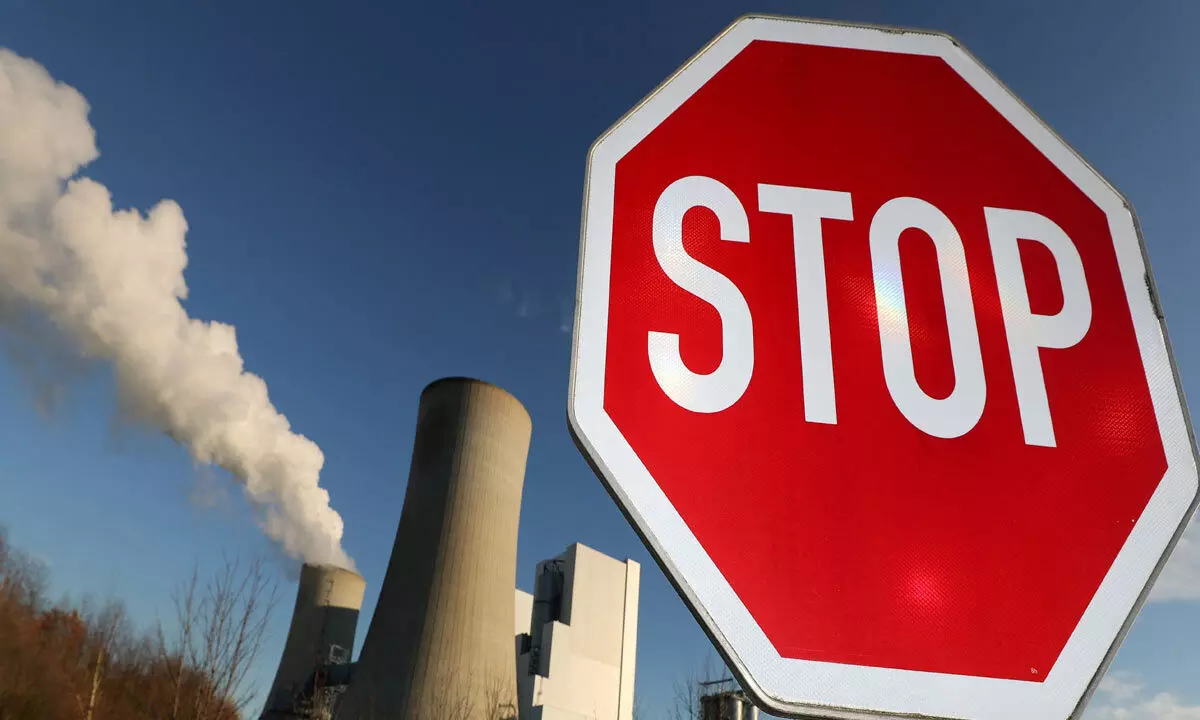No Climate Justice sans fossil fuel phase-out

Climate change made 2023 the warmest year on record. As urgency mounts to address this worldwide crisis, phasing out the use of fossil fuels is a necessary step that all nations must take.
Climate change made 2023 the warmest year on record. As urgency mounts to address this worldwide crisis, phasing out the use of fossil fuels is a necessary step that all nations must take. This is because fossil fuels—coal, oil and gas — are the primary drivers of the climate crisis accounting for over 75% of global greenhouse gas emissions and nearly 90% of all carbon dioxide emissions.
Fossil fuels can be linked to severe human rights harm. According to the International Energy Agency (IEA), there cannot be any new fossil fuel projects if countries are to meet existing climate targets and avoid the worst consequences for frontline communities. Not addressing these issues can create a human rights crisis of unprecedented scale.
Another ethical imperative for phasing out from fossil fuels is our responsibility to communities facing loss and damage. Fossil fuel projects and infrastructure often expose fence line and frontline communities to toxic substances, environmental degradation, and increased vulnerability to climate disasters.
Fossil fuel extraction leads to deforestation, habitat destruction, and water pollution, which have contributed to 1.2 million deaths in 2020, leading to biodiversity loss and ecosystem degradation. Fossil fuel extraction and production often violate the rights of indigenous peoples, local communities, and environmental defenders, who face land grabbing, displacement, violence, intimidation, and criminalization. This must change.
When we look at the African continent, the current increase in investment in fossil fuels will increase Africa’s carbon emissions and raise Africa’s share of global climate change.
In 2021, Africa contributed 3.9% (1.45 billion tonnes of CO2 eq.) of global carbon dioxide emissions from fossil fuels and industry. Continuing with this energy policy would be very suicidal for their future in the face of the consequences of climate change. There is also an economic impact of fossil fuel production too, especially in Africa. Fossil fuel subsidies and investments divert resources from addressing the needs and rights of people living in poverty.
It is well known that Africa has contributed the least to climate change but still suffers the most from its consequences. Since rich countries have historically emitted the most greenhouse gases, the goal of transitioning to renewable energy sources is an act of responsibility and justice, providing support to those most in need.
Fossil fuel extraction leads to deforestation, habitat destruction, and water pollution, which have contributed to 1.2 million deaths in 2020, leading to biodiversity loss and ecosystem degradation.
In the DRC for instance, if the peatland is destroyed by the construction of roads, pipelines and other infrastructure needed to extract the oil, up to 6 billion tonnes of CO₂ could be released, which is the equivalent of 14 years’ worth of current UK greenhouse gas emissions.
Through a transition to renewable energies such as wind power and solar energy, we can take control of the effects of climate change and support future generation’s sustainability moving forward.
Africa has huge renewable energy potential – it has 60% of the world’s best solar resources, but the continent receives less than 3% of global energy investment.
As a region that has had the smallest impact on the climate crisis but suffers significant impacts now and in the future, the international community must work with Africa to invest in its clean energy future. For instance, Kenya is home to the Lake Turkana Wind Project, currently the largest wind farm in Africa. Output exceeds 310 MW—enough to power 1 million homes.
Through a transition to renewable energies such as wind power and solar energy, we can take control of the effects of climate change and support future generation’s sustainability moving forward.
The project also attracted the largest private investment in Kenya’s history, amounting to US$650 million. For Africa to achieve its energy and climate goals, Africa needs $190 billion of investment a year between 2026 to 2030, with two-thirds of this going to clean energy.
Fortunately, some progress has been made toward ending use of fossil fuels on a global scale. During the recent COP28 in Dubai, nearly 130 nations approved a roadmap for “transitioning away from fossil fuels“—a first for a UN climate conference—but the deal still stopped short of a long-demanded call for a “phaseout” of oil, coal, and gas.
This is what is needed to transition away and help keep us from reaching the 1.5°C degree limit. Another shortcoming of COP28 is that there was neither a clear commitment nor a well-funded phaseout of all fossil fuels, nor was there clear funding for countries to transition to renewables and cope with escalating climate impacts.
We have a responsibility to protect future generations and support vulnerable communities. The countries, businesses, civil society, and leaders who came together during COP28 and made this first step deal should now walk the talk.
I can’t agree more with UN Secretary-General António Guterres who said during COP28: ‘’that a fossil fuel phaseout is inevitable, whether they like it or not. Let’s hope it doesn’t come too late.”
Being the custodians of the planet, it is our moral duty to leave a world that is habitable for our children and our grandchildren.
Fossil fuel extraction and production often the rights of indigenous peoples, local communities, and environmental defenders, who face land grabbing, displacement, violence, intimidation, and criminalization. This must change.
(Courtesy: https://www.commondreams.org/)











